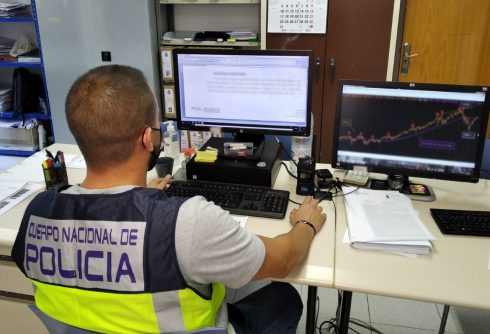In this article, we’ll look at real-estate development to sell or rent properties to third parties from a business point of view, rather than what is called ‘self-promotion’ (autopromoción in Spanish), where a private person develops property for their own use. All the information below about taxes applies only to Andalucía, as tax rates and obligations vary across the different regions of Spain.
We consulted Inmaculada Domecq, a partner and the director of the tax department at the Marbella office of the tax, legal, auditing and accountancy firm UHY Fay & Co, about the different scenarios under Spanish law for property developers, depending on the developer’s status, economic activity, the type of property purchased and the intention to sell or rent properties.
THE BEST WAY TO DEVELOP PROPERTY FOR SALE IS USUALLY VIA A COMPANY STRUCTURE
The first consideration for property developers who intend to invest in real-estate projects is how to structure the best possible legal status to protect their interests, in case of liability, and optimise their fiscal obligations. For obvious reasons, Inmaculada points out, most developers prefer to use a company vehicle to limit their exposure to claims and debts, while benefiting from tax deductions that apply to companies and professional developers.

When the goal is to develop property for sale, acting as a self-employed professional or using a Spanish limited company (sociedad limitada) or a public listed company (sociedad anónima) enables developers to deduct VAT (Impuesto de Valor Añadido or IVA) paid on all purchases that are incurred as part of their economic activity, Inmaculada explains. Non-professional developers are not eligible for VAT deductions.
TAXES DUE DEPEND ON THE TYPE OF PROPERTY PURCHASED FOR DEVELOPMENT
If a developer buys land from a private seller, transfer tax (Impuesto de Transmisiones Patrimoniales or ITP in Spanish) applies, Inmaculada says. In Andalucia this was levied on a sliding scale, depending on the purchase price, but at the end of April 2021, this was cut to a flat rate of 7% until December 31, 2021. When a plot is sold by a professional seller or company, VAT is applicable at a rate of 21%. Stamp duty (Actos Jurídicos Documentados or AJD in Spanish), for which buyers are liable to register any real-estate transaction, has also been reduced to 1.2% until the end of 2021.
In the case of brand-new properties, which are almost always sold by a developer, VAT is due at a rate of 10% and AJD is also applicable at 1.2%. But when a developer buys a secondhand residence with the intention of reselling it, ITP may be applied at a reduced rate of 2%, instead of 7%, as long as it is sold within a maximum period of five years. This is only the case, Inmaculada notes, when the buyer is registered with the Spanish Tax Agency to do business as a developer, when the property is residential and has been declared in the deeds for resale.
Inmaculada adds that, in cases where the reduced rate of ITP applies, renting a property during the term of ownership is not permitted. The purpose of the acquisition should be resale, although sometimes a rental opportunity arises, for example when a prospective purchaser wishes to ‘test’ the property before buying. In such cases, due consideration should be given to any rental agreement, as it may result in liabilities for the reseller. On one hand, a long-term tenancy agreement could impede a sale being possible before five years are up and, on the other, as the declared intention of the development is to sell the property, the Tax Agency could impose fines and seek payment of the difference, if a reduced rate of ITP was originally applied.
DEVELOPING AND INVESTING IN PROPERTIES FOR RENTAL, RATHER THAN FOR RESALE
In the case where a property developer owns eight or more residential properties that are rented under long-term contracts (for a minimum duration of three years) as tenants’ primary residences, special tax rules (Régimen Especial de Entidades Dedicadas al Arrendamiento de Viviendas in Spanish) apply. To qualify, companies must earn at least 55% of their earnings during the fiscal year from rental income. When this is the case, Inmaculada says, the rate of corporate tax levied on profits is reduced from 25% to just 4%.
77 Calle Caridad, 29680 Estepona (Málaga), Spain
Tel: +34 951 318480 | Office Mob: +34 678 452109
adam@terrameridiana.com | www.terrameridiana.com
Click here to read more Columnists News from The Olive Press.








